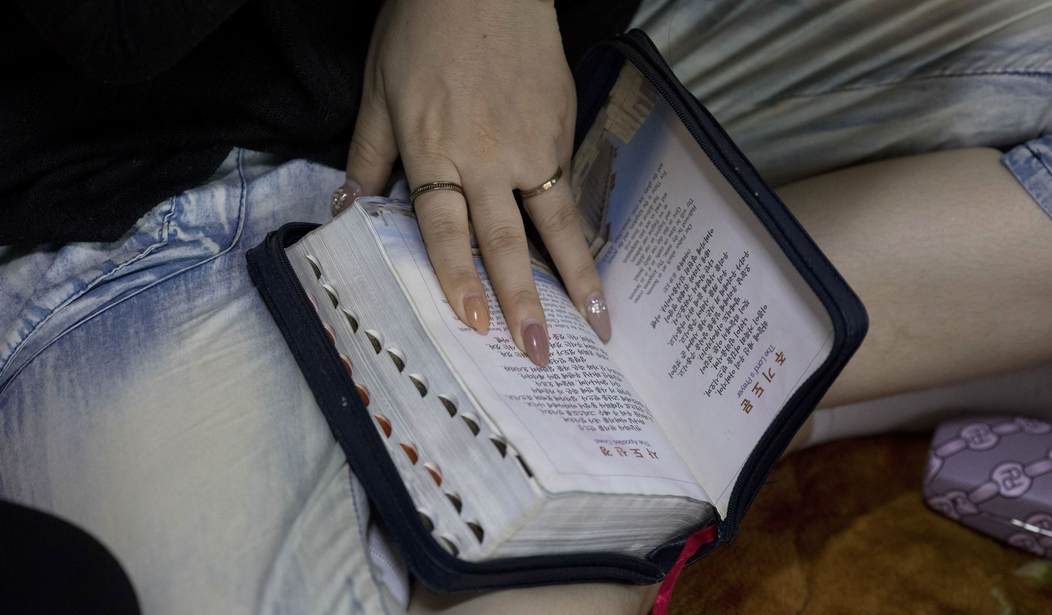Most retirees buy a condominium hoping for a peaceful, carefree retirement. Most don’t expect their condominium to target them because of their religion. Unfortunately, Florida retiree Donna Dunbar found just the opposite when she moved to the Cambridge House condominiums in Port Charlotte.
A lay minister at her Seventh Day Adventist church, Donna has spent her life serving her community. In 2010, Donna and her husband Clarence received the President’s Volunteer Service Award for their work establishing a soup kitchen and ministry for the homeless. Shortly after moving to Cambridge House, Donna started a women’s Bible study. She invited other residents and a few friends to gather on Monday mornings in the condominium social room to study Experiencing God by Henry T. Blackaby, pray together, and share lunch. Less than a dozen women joined her.
The condo social room serves as a sort of extended living room, a place for residents to bring their friends and family. Other residents use the social room frequently for thrice-weekly card games, movie nights, game nights, and parties.
Unfortunately, a handful of residents objected to Donna’s Bible study, demanding that the condo association prevent her from using the social room because she studied a religious subject. Last month, the condo association did just that, adopting a rule banning “prayers, religious services, observances, and meetings of any kind” from common areas. The association did not provide any prior notice, which, we argue, not only violates Florida law, but is also evidence of the association’s intent to quietly eliminate any opportunity for Donna’s Bible study to continue. Without notice, neither Donna, nor any condominium owner had opportunity to speak against the new rule.
Recommended
With the new rule quietly adopted, the condominium’s management company immediately began vigorously enforcing the resolution.
It sent a letter to Donna prohibiting her Bible study from meeting in the social room and launched a campaign to rid the common areas of any religious references. The decorative angel fountain in the courtyard was one of the first casualties, followed by a memorial St. Francis statue a resident donated in memory of a deceased loved one.
To top it off, a sign appeared on the lobby organ declaring “ANY AND ALL CHRISTIAN MUSIC IS BANNED!”
In response, my firm, First Liberty Institute, partnered with our network attorneys at Greenberg Traurig, P.A., to file a Fair Housing complaint with the Department of Housing and Urban Development.
The Fair Housing Act prohibits discrimination against anyone on the basis of religion in the provision of services and facilities in connection with a dwelling. This means that the condominium association cannot refuse Donna and her Bible study equal access to the social room because of the Bible study’s religious nature.
The condo association recently rescinded the rule, but continues its indirect efforts to keep Donna’s Bible study out of the social room, while embracing a variety of similar secular uses.
If the association were truly committed to welcoming its religious residents, Donna’s Bible study would be meeting today. Instead, the association appears intent on finding a way to give the appearance that they welcome religious residents like Donna, but still shut down her Bible study. At its next board meeting, the association will consider a rule that only applies to certain recurring events. It would not apply to the card games or movie nights, of course. Only Donna’s Bible study would require the board’s approval to meet.
The message from the association is clear: talk about your religion within the four walls of your home, but religious residents are unwelcome in the public spaces of their condo. As HUD responds to our complaint with its in-depth investigation, perhaps the association will realize that excluding religious residents—whatever the excuse—is not an option.
The unequal treatment of citizens in the community simply out of hostility to religion violates federal law and the First Amendment. Indeed, the Department of Justice Civil Rights Division describes this very situation as a textbook example of unlawful religious discrimination.
We are confident that Secretary Ben Carson and the Department of Housing and Urban Development will resolve this issue quickly.
























Join the conversation as a VIP Member